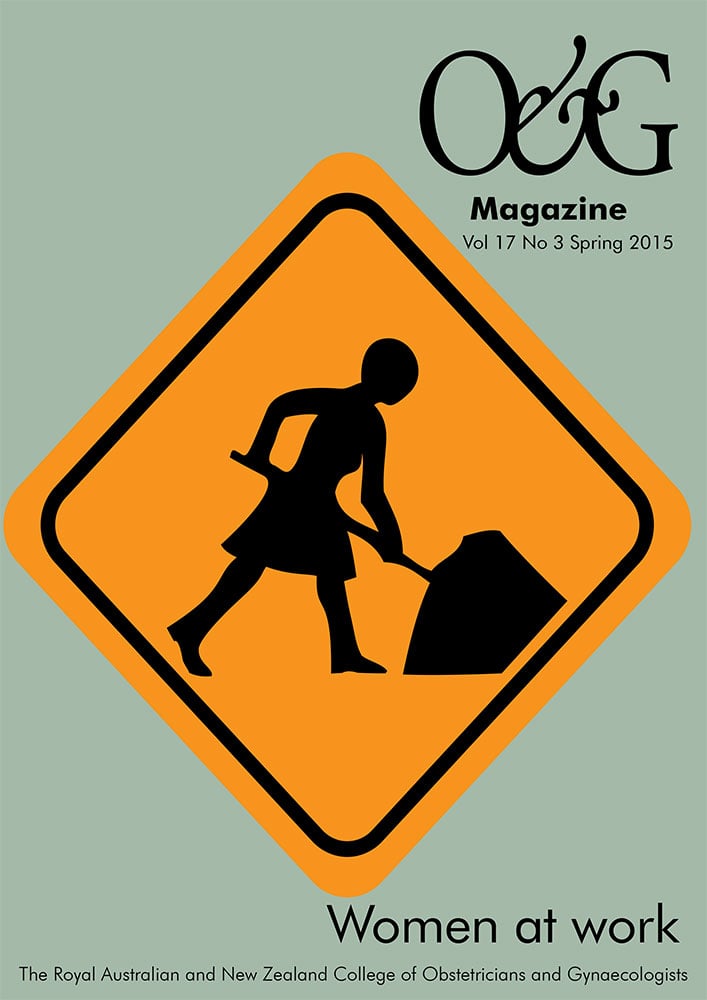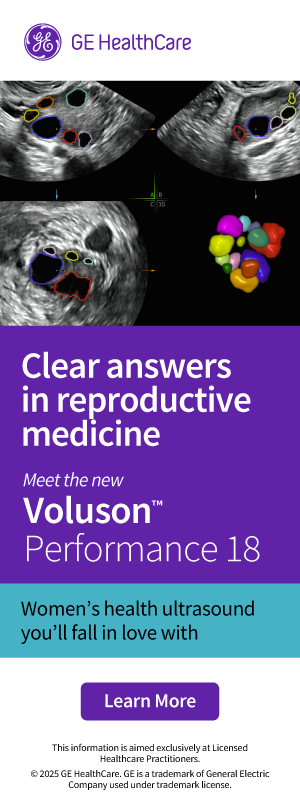A state-wide training and support program for DRANZCOG Advanced rural general practitioners is helping to ensure the future of GP obstetrics in rural Victoria. The program, which includes practical workshops, evening dinners and networking opportunities, was established to fill a gap in current DRANZCOG training.
The deficit was identified by previous rural GP DRANZCOG trainees, who reported a lack of confidence in their competence to practice as GP obstetricians (GPOs), and feelings of professional isolation. Concerns this could lead to declining numbers of GPOs and threaten the viability of rural maternity services prompted the establishment of the DRANZCOG trainee training and support program.
The program is co-ordinated by Southern General Practice Training (one of the Victorian Regional Training Providers of the Australian General Practice Training Program and the Rural Generalist Program) and funded by the Victorian Government Department of Health. Now in its third year, the program is delivered by a group of dedicated specialists and GP obstetricians and is open to rural DRANZCOG trainees, as well as GPOs from smaller hospitals across Victoria.
The program recognises the vital role GPOs play in providing clinical services and support to women at all stages of their pregnancy and birth, particularly in rural areas where specialist obstetric services may be limited. A decline in the number of practising GPOs, especially those with caesarean skills, would have a significant impact in rural Victoria by placing increased pressure on specialist obstetricians at larger regional clinics and hospitals, and increasing the likelihood of women having to travel out of their community to give birth.
The program
The State-wide Training and Support for DRANZCOG Advanced Rural General Practitioners program aims to encourage and further increase the capacity of Victorian trainees to practice rural GP obstetrics in the future.
Its expected outcomes are:
- clinical, professional and collegiate support for rural generalist GPs;
- competent and confident rural generalist GPs; and
- acquisition of the required procedural competencies for rural generalist
The program consists of practical, hands- on, skills-based workshops delivered over one-and-a-half days, four times a year in varying regional locations across the state. Groups are kept small, with about ten trainees in each session, to enable participants to practice vital skills in a safe space, with time to ask questions, practice techniques and share experiences with peers and mentors.
Skills-based learning areas covered by the program include:
- surgical skills necessary for caesarean section – anatomy, knots, simulation, complications;
- the RANZCOG Fetal Surveillance Education program;
- IUD use and practical insertion training;
- operative vaginal birth, including vacuum and forceps;
- perineal repair, including third-degree tear workshop;
- episiotomy;
- obstetric emergencies, including PPH, breech, manual removal, shoulder dystocia;
- anaesthetic and ethical issues in obstetrics;
- medical termination of pregnancy;
- perinatal mental health and intimate partner violence counselling;
- communication skills including breaking bad news and the difficult patient; and
- simulation workshops, including team building and crisis resource
The topics covered at each workshop differ, so trainees are encouraged to attend all four throughout the year. While the focus of the workshops is on skill development and consolidation, the residential nature of the program also provides mentoring and networking opportunities to reduce feelings of professional isolation and help develop a support system of trainees, GP generalists and specialists.
The burden of travel is reduced by the provision of accommodation and evening social events foster collegiality. Peer networking then continues through regular email communication between workshops.
A similar state-wide training and support program is run in Victoria for GP anaesthetists and, given the relationship between the two specialities, two of the GP obstetric workshops per year are co- located with the anaesthetist program. While most of the sessions run concurrently, some joint sessions are attended by both sets of trainees, further enhancing the networking aspect of the program.
The state-wide training and support program expands on and complements the successful Post-DRANZCOG pathway1 program operating in the Gippsland region, which also addresses issues of confidence and competence by providing support to GPOs on completion of their DRANZCOG Advanced qualification.
The results
An evaluation report produced by the Monash School of Rural Health, Office of Research at the conclusion of the first year of the program in 2013, found it had been very successful in achieving its expected outcomes.2
he report found the program substantially improved:
- the self-reported procedural and professional competence of participants;
- capacity to practice rural GP obstetrics in the future;
- the translation of evidence into practice by trainees; and
- development of a supportive, collegial community environment that helps overcome professional and geographical isolation.3
Participants indicated the most valuable aspects of the program were: it was relevant, stimulated interest in the topic area, was practical, hands on, reduced the sense of isolation through participation, and enhanced their capacity to integrate theory and evidence into practice.4
Direct feedback from participants about the program, via written evaluation surveys at the end of each workshop, has also been overwhelmingly positive.
Participants have praised the program’s practical and clinical focus, with direct quotes from evaluations stating:
- ‘It was comprehensive, covering highly relevant topics for my stage of Opportunities were provided that simply aren’t available in the workplace.’
- ‘[It provided] instruction and practical clinical skills in a non-threatening environment with good ’
- ‘[It was] [I have] increased confidence to attempt instrumental deliveries and complex tears.’5
In addition to the skills learned and theory discussed, participants also highlighted the mentoring and development of a support network of trainees, GP generalists and specialists as a critical benefit of attending the program.
The future
Victorian Government funding is allowing Southern GP Training (SGPT) to again deliver four one-and-a-half day workshops as part of the State-wide Training and Support for DRANZCOG Advanced Rural General Practitioners program in 2015.
Workshops in Gippsland, Bendigo and Colac have already been held, while workshops in Wangaratta will take place in October. The Gippsland and Colac workshops targeted GPOs only, while the workshops in Bendigo and Wangaratta combine with anaesthetist registrars.
Based on the proven success of the program to build confidence, competence and enthusiasm among DRANZCOG Advanced rural GPs, it is our sincere hope government funding will continue into the future, allowing the vital work of GPOs in rural Victoria to not only survive, but thrive.
Box 1. Case study – Ruyu Yao, GP registrar and advanced DRANZCOG trainee, Gippsland
Inspired by the good work of the Gippsland GP obstetricians and the local specialist obstetrician/supervisor Dr David Simon, I embarked on the challenging and rewarding journey of DRANZCOG training in 2011, at Latrobe Regional Hospital, then went on to Advanced Diploma training at West Gippsland Hospital in 2014.
I was well supported by the supervisors, with plenty of hands-on experience, lots of formal and informal discussions, encouragement and honest feedback.
I participated in the SGPT State-Wide Training and Support DRANZCOG workshop program in 2014, where I received further skills training and was provided with excellent opportunities to exchange clinical experiences with colleagues and network with other trainees, GP obstetricians and GP anaesthetists. We were given the opportunity to discuss concerns and issues we may have with the working arrangements in different hospital settings, which proved extremely helpful, and the training was flexible enough to still allow me to undertake locum work in the Northern Territory during the year.
I am now in the final stage of my GP training and am sharing in the antenatal, intrapartum, and postpartum care of patients with other local GP obstetricians. I’m very fortunate to have a great team giving me ongoing support both at work and in my social life, and I highly recommend participation in the SGPT training program to other DRANZCOG Advanced rural GPs.
References
- Sterling, L. Post-DRANZCOG pathway.O&G Magazine. 2013 Spring; 15:3.
- Evaluation Report: The State-wide Training and Support for DRANZCOG Advanced Rural General Practitioners program, Monash School of Rural Health, Office of Research, 2013.
- Evaluation Report: The State-wide Training and Support for DRANZCOG Advanced Rural General Practitioners program, Monash School of Rural Health, Office of Research, 2013.
- Evaluation Report: The State-wide Training and Support for DRANZCOG Advanced Rural General Practitioners program, Monash School of Rural Health, Office of Research, 2013.
- Evaluation Surveys, Survey Monkey for SGPT in 2012, 2013 and 2014.







Leave a Reply